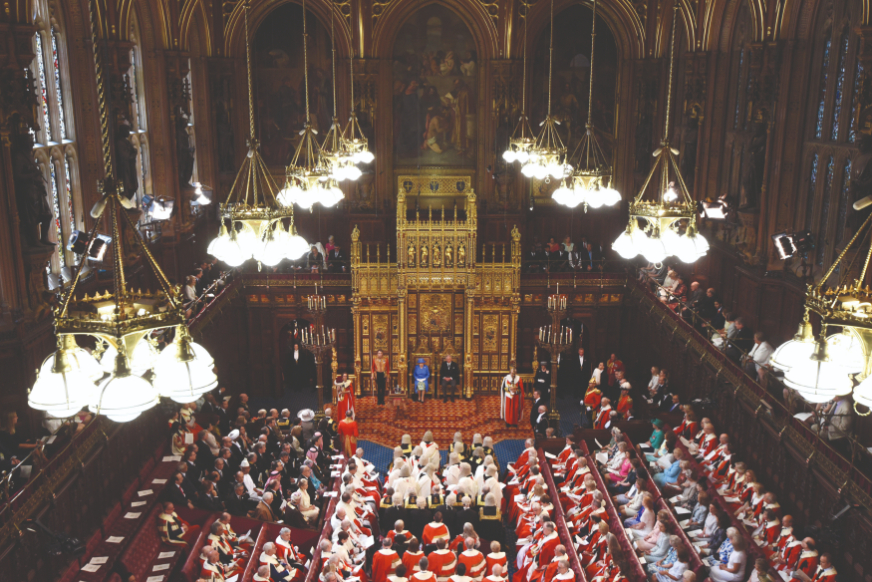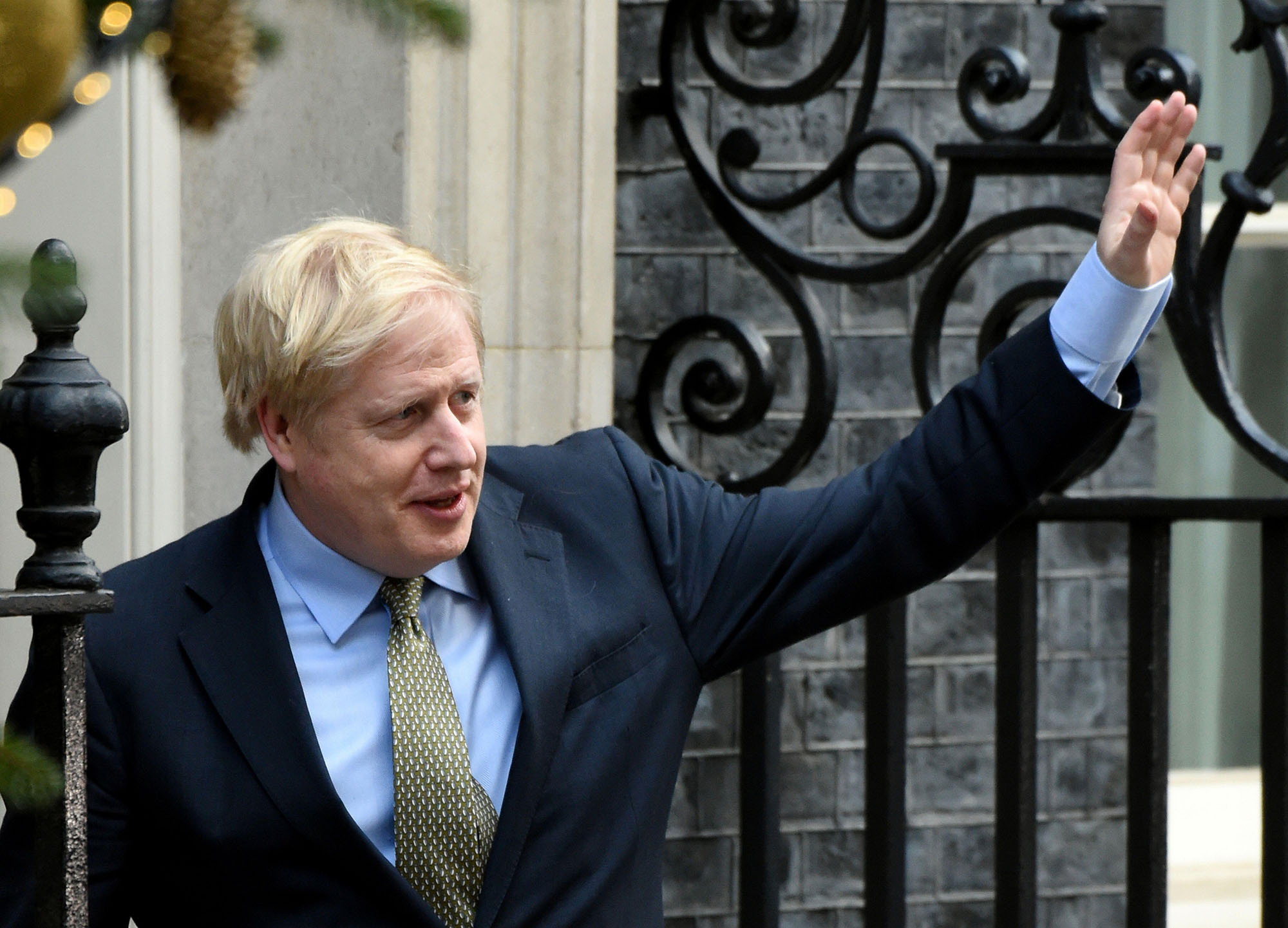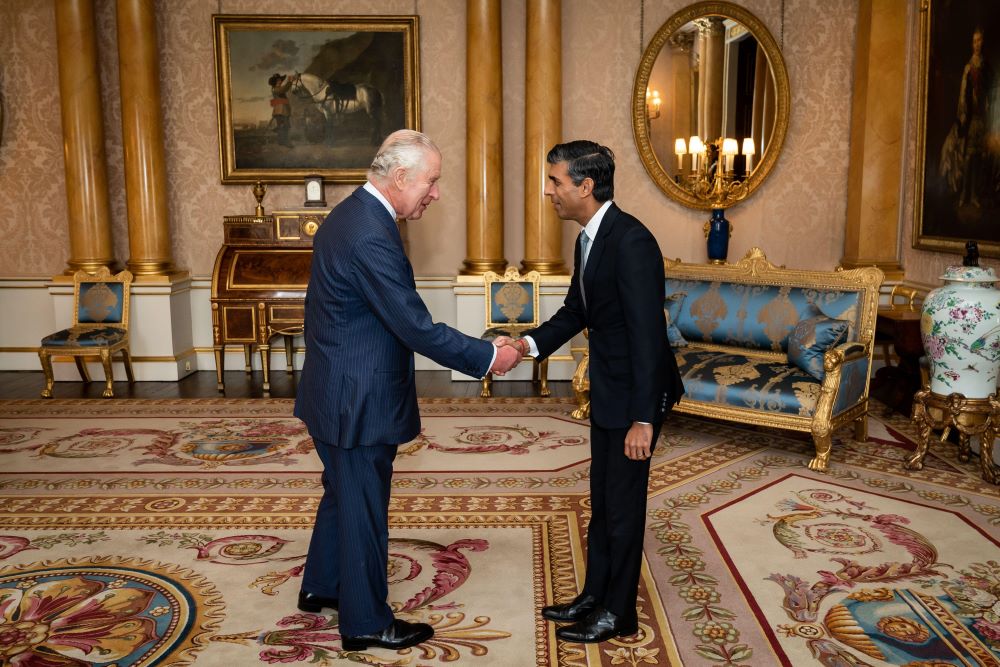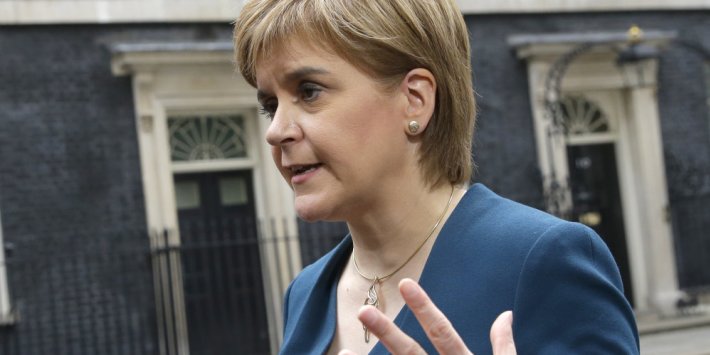What Could Labour's Government Agenda Look Like?
7 min read
On Monday, Keir Starmer gave the UK a taste of what the next Labour government could look like as he launched a "Commission on the UK’s Future" report from former prime minister Gordon Brown.
The Commission on the UK’s Future – which began its work in 2020 and is led by Brown – has set out 40 recommendations focused on reforming the constitution, rebalancing power in the UK and improving economic prosperity.
Once they have undergone a broader consultation process, the ideas set out in the report are likely to form the bedrock of Labour’s next general election manifesto.
Brown claims that all the Commission’s recommendations “can be delivered and have an impact within a single Parliamentary term” and are likely to have “strong popular support”.
Here are the key points set out in Brown’s plan:
Abolishing the House of Lords

Brown’s report recommends that the “indefensible” House of Lords be replaced with a new “democratically legitimate” second chamber, dubbed the “Assembly of the Nations and Regions”.
The report isn’t explicit on what this chamber should look like, adding that its exact “composition and method of election” should be put to further consultation.
But it does propose that this new chamber should be significantly smaller and more geographically representative than the current setup.
It suggests that the new chamber should have around 200 members, and be elected on a different electoral cycle to the House of Commons.
The current Lords has around 800 members, making it the second largest parliamentary chamber in the world after the National Peoples’ Congress in China.
New powers given to this assembly include overseeing the expanded powers of local government and devolved administrations, which is another cornerstone of Brown’s plan.
It would also be given responsibility for upholding standards in public life, including considering breaches of the ministerial code and approving appointments to the new Integrity and Ethics Commission, which would replace the prime minister's ethics adviser.
The assembly would be given specific power to uphold the UK constitution by protecting the distribution of power between Westminster and the devolved nations, and preventing legislation that could undermine defined constitutional statutes.
Cleaning up politics
 (Alamy)
(Alamy)
Brown’s report claims that Boris Johnson’s administration “saw constitutional norms and established expectations of propriety wholly disregarded” while the mechanisms for enforcing them were “found seriously wanting”.
To help “clean up politics”, the Commission has proposed that “tougher rules and more rigorous enforcement” is needed to improve public perception of our political system.
On foreign money, Brown says simply that “there should be none” in British politics, and that lack of prosecutions has meant many illegal donations to political parties have gone unchallenged.
The report posits that the Electoral Commission should be given enhanced powers to “clamp down on this objectionable practice”.
In the Commons, MPs should be banned from taking on “the vast majority” of second jobs, with exceptions allowed for employment required to maintain professional memberships, such as medicine.
A new Integrity and Ethics Commission should be set up to investigate breaches of a new, stronger code of conduct, while a separate body should be established to scrutinise appointments in public life.
It also suggests that the operating practices of the new ethics commission should be regularly scrutinised by a “citizens jury of ordinary people”, with their findings debated annually in both Houses of Parliament.
The report states that the UK is not a “corrupt country”, but it argues that there have been many recent examples of “corrupt practices at or close to the centre of government”.
To tackle this, the Commission endorses calls for a new Independent Anti-Corruption and Anti-Cronyism Commissioner, to replace the current “toothless and far from independent” anti-corruption tsar.
Constitutional reform
 (Alamy)
(Alamy)
The report describes the UK as experiencing a “constitutional moment”, and claims the country needs to set out a new “mission statement for the union of nations”.
This carefully worded statement would be drafted through “expert deliberation and detailed consultation with the public”, and so the Commission merely offers this suggestion as a “starting point for discussion”.
The report does suggest, however, that this new mission statement should include a requirement for decisions “to be taken as close as meaningfully and practicably possible to the people affected by them”.
It also posits that this new mission statement should include a constitutional requirement that the “autonomy of local government should be respected by central government”, which links to a further clause enshrining the desire to “rebalance the UK’s economy”.
More broadly, this constitutional statement should include a series of protected social rights, such as need-based healthcare, which reflect the “current shared understanding of the minimum standards and public services that a British citizen should be guaranteed”.
Moving power from London
 (Alamy)
(Alamy)
The Commission criticises a “shocking” imbalance of power and economic opportunity between Westminster and the rest of the UK.
Introducing the report on Monday, Starmer said a Labour government would oversee “a change not just in who governs, but how we are governed”.
“Redistribution is a good thing but it’s not a one-word plan for a fair society or a strong economy,” he said.
“By empowering our towns, cities, regions and nations to work together on local growth plans, Labour will reignite our economy.
“New powers over skills, transport, planning and culture, all helping to drive growth by developing hundreds of clusters of economic activity.
The wide-ranging devolution proposals in the Commission’s report promise to ensure that “every town and city can take control of its economic future” by giving local decision makers greater powers to help drive growth.
This includes greater oversight of skills training and unemployment support, as well as transport, energy, housing and childcare policy in their local area.
Local governments should also be given new fiscal powers to oversee their revenue, the report argues, plus new powers to initiate local legislation in Parliament.
To support this economic growth, the UK Infrastructure Bank and the British Business Bank would both be given expanded remits to promote regional economic equality.
To kickstart this decentralisation, Brown calls for 50,000 civil service jobs to be transferred out of London, saving the government at least £200m per year.
Uniting the four nations
 (Alamy)
(Alamy)
The Commission, led by Scottish-born Brown, claims that debate around the four nations has “focused too long only on which powers are held by whom without thinking of the benefits of co-operation to all”.
The report calls for a strengthening of the Sewel Convention, which recognises that Parliament will not normally legislate with regard to devolved matters without the consent of the devolved administration.
It also suggests that parliamentary privilege – which grants MPs and peers certain legal immunities when speaking in Parliament – should be extended to members of the devolved assemblies in Scotland, Wales and Northern Ireland.
New powers should be made available to the Senedd and Welsh governments, including embarking upon new powers over youth justice and the probation service. The report also recommends that directly elected mayors should be set up in devolved nations.
To help improve cooperation between the devolved governments, the Commission proposes a “solidarity clause”, which it defines as “a legal obligation of co-operation between the different levels of government and institutions across the UK”.
Much of the desired cooperation between the nations’ governments would be overseen by a new body dubbed the “Council of the Nations and Regions”.
Through such mechanisms, devolved leaders would be more included in international trade policy, as well as reducing regional economic inequality in the UK.
